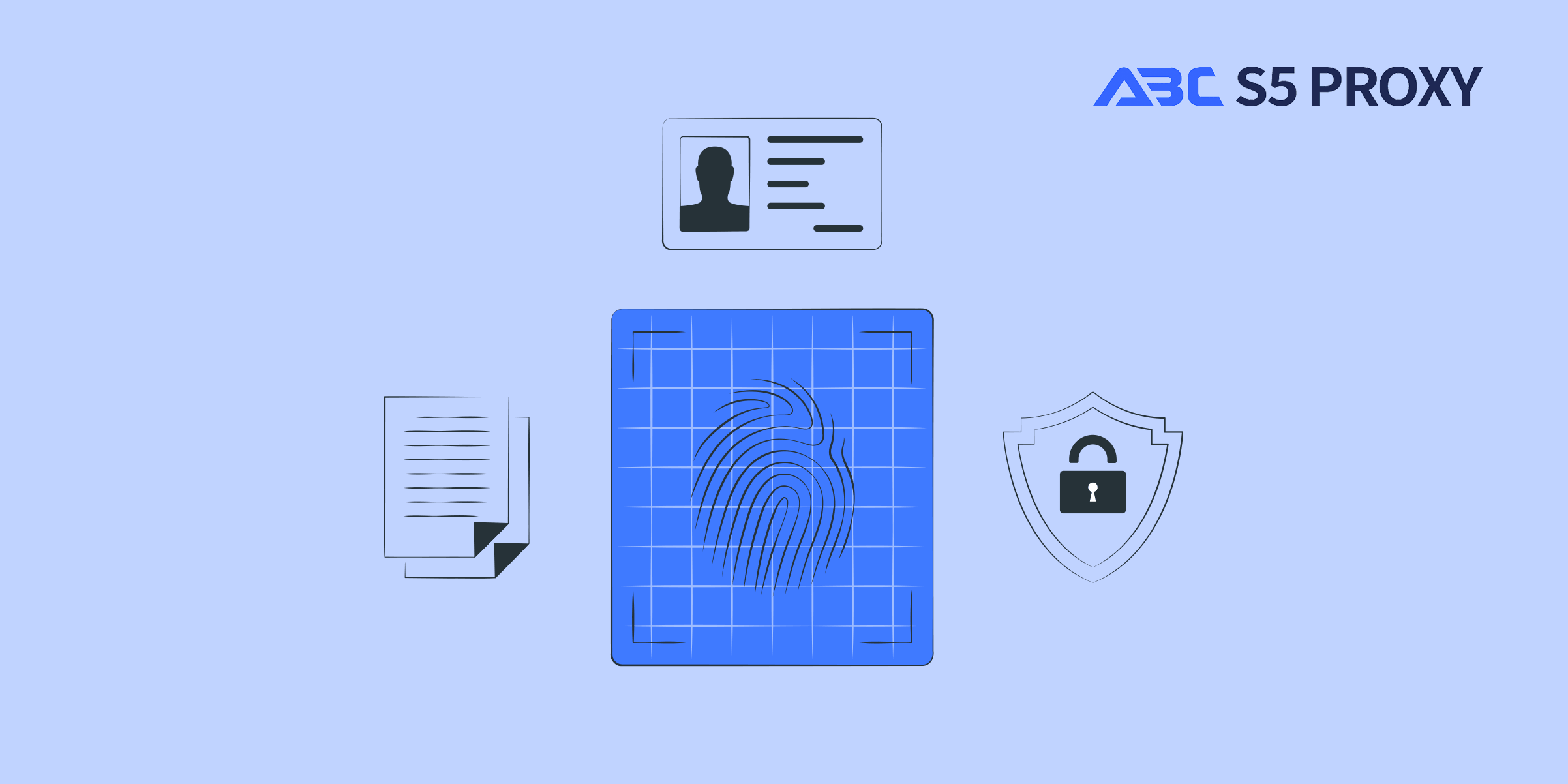Residential Proxies
Allowlisted 200M+ IPs from real ISP. Managed/obtained proxies via dashboard.

Proxies
Residential Proxies
Allowlisted 200M+ IPs from real ISP. Managed/obtained proxies via dashboard.
Residential (Socks5) Proxies
Over 200 million real IPs in 190+ locations,
Unlimited Residential Proxies
Use stable, fast, and furious 700K+ datacenter IPs worldwide.
Static Residential proxies
Long-lasting dedicated proxy, non-rotating residential proxy
Dedicated Datacenter Proxies
Use stable, fast, and furious 700K+ datacenter IPs worldwide.

Web Unblocker
View content as a real user with the help of ABC proxy's dynamic fingerprinting technology.
Proxies
API
Proxy list is generated through an API link and applied to compatible programs after whitelist IP authorization
User+Pass Auth
Create credential freely and use rotating proxies on any device or software without allowlisting IP
Proxy Manager
Manage all proxies using APM interface

Proxies
Residential Proxies
Allowlisted 200M+ IPs from real ISP. Managed/obtained proxies via dashboard.
Starts from
$0.77/ GB
Residential (Socks5) Proxies
Over 200 million real IPs in 190+ locations,
Starts from
$0.045/ IP
Unlimited Residential Proxies
Use stable, fast, and furious 700K+ datacenter IPs worldwide.
Starts from
$79/ Day
Rotating ISP Proxies
ABCProxy's Rotating ISP Proxies guarantee long session time.
Starts from
$0.77/ GB
Static Residential proxies
Long-lasting dedicated proxy, non-rotating residential proxy
Starts from
$5/MONTH
Dedicated Datacenter Proxies
Use stable, fast, and furious 700K+ datacenter IPs worldwide.
Starts from
$4.5/MONTH
Knowledge Base
English
繁體中文
Русский
Indonesia
Português
Español
بالعربية

How to Choose a Proxy Server Correctly
In today's digital age, the use of proxy servers has become increasingly common for individuals and businesses alike. Whether you are looking to enhance your online security, access geo-restricted content, or improve your browsing speed, choosing the right proxy server is crucial. With a myriad of options available, it can be overwhelming to make the correct choice. In this blog post, we will guide you through the process of selecting a proxy server that meets your specific needs.
Before delving into the factors to consider when choosing a proxy server, it is essential to understand what a proxy server is and how it functions. A proxy server acts as an intermediary between your device and the internet. When you connect to the internet through a proxy server, your online activities are routed through the server, which can mask your IP address and provide various benefits such as improved privacy and security.
There are several types of proxy servers available, each with its unique features and use cases. The main types of proxy servers include:
1. **HTTP Proxies**: These proxies are designed for web browsing and can handle HTTP traffic.
2. **SOCKS Proxies**: SOCKS proxies operate at a lower level than HTTP proxies, making them more versatile and suitable for a wide range of activities.
3. **Residential Proxies**: Residential proxies use IP addresses provided by Internet Service Providers (ISPs) and appear more legitimate to websites.
4. **Datacenter Proxies**: Datacenter proxies offer speed and reliability, making them ideal for tasks that require high bandwidth.
When selecting a proxy server, there are several crucial factors to keep in mind to ensure you make the right choice. Some of the key considerations include:
1. **Location**: The location of the proxy server plays a significant role in accessing geo-restricted content. If you require access to region-specific websites or services, choose a proxy server located in that region.
2. **Security Features**: Opt for a proxy server that offers advanced security features such as encryption and malware protection to safeguard your data and privacy.
3. **Speed and Reliability**: Consider the speed and reliability of the proxy server, especially if you require fast and uninterrupted internet connectivity.
4. **Scalability**: If you anticipate an increase in internet traffic or the need for multiple connections, choose a proxy server that can scale according to your requirements.
5. **Cost**: Evaluate the cost of the proxy server services and ensure it aligns with your budget while meeting your performance needs.
Choosing the right proxy server is essential for achieving your online objectives, whether it be enhancing security, accessing restricted content, or improving browsing speed. By understanding the different types of proxy servers available and considering crucial factors such as location, security features, speed, scalability, and cost, you can make an informed decision that aligns with your specific needs. Remember to conduct thorough research and select a reputable proxy server provider to ensure a seamless and secure online experience.
Featured Posts
Popular Products
Residential Proxies
Allowlisted 200M+ IPs from real ISP. Managed/obtained proxies via dashboard.
Residential (Socks5) Proxies
Over 200 million real IPs in 190+ locations,
Unlimited Residential Proxies
Use stable, fast, and furious 700K+ datacenter IPs worldwide.
Rotating ISP Proxies
ABCProxy's Rotating ISP Proxies guarantee long session time.
Residential (Socks5) Proxies
Long-lasting dedicated proxy, non-rotating residential proxy
Dedicated Datacenter Proxies
Use stable, fast, and furious 700K+ datacenter IPs worldwide.
Web Unblocker
View content as a real user with the help of ABC proxy's dynamic fingerprinting technology.
Related articles

How to download a dedicated proxy for Telegram
Analyze the core issues of Telegram proxy downloads, explore efficient access solutions and privacy protection points, and understand how proxy IPs can optimize cross-border communication experience.

How to improve data acquisition efficiency through wget proxy user
This article analyzes the technical principles and application scenarios of the wget tool combined with the proxy IP, and discusses how to optimize the data acquisition process through the proxy service of abcproxy to improve efficiency and stability.